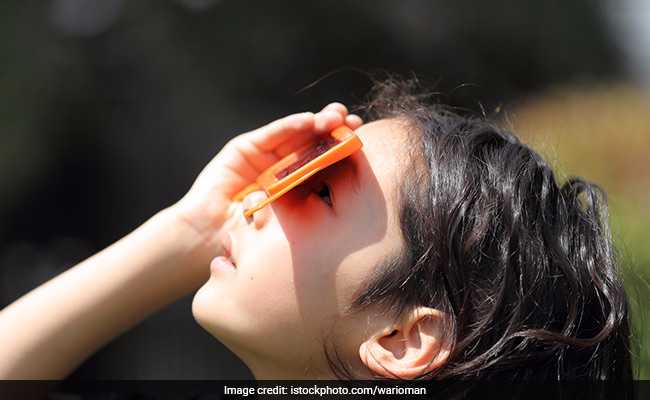
Much to the delight of the skywatchers, the world will get to witness the second eclipse of the season - a partial solar eclipse or Aanshik Surya Grahan on February 15, 2018. This comes two weeks after the moon gazers enjoyed the rare celestial phenomenon of the "Super Blue Blood Moon" on January 31. In total solar eclipse, the Moon moves between the Sun and Earth, blocking out the Sun's rays and casting a shadow on parts of Earth and this hides the sun completely for some time; but in a partial solar eclipse, the Sun, Moon and Earth are not exactly lined and the Moon only partly obscures the Sun's disk and casts only its penumbra on Earth.
Where will the partial solar eclipse 2018?
The partial solar eclipse 2018 will be visible in southern South America, including many locations in Argentina, Chile, Paraguay, and Uruguay, and in Antarctica. It will also be visible from some areas of the Atlantic and Pacific Oceans.
How can Indians watch the partial solar eclipse 2018?
While the partial solar eclipse will not be visible to Indians, they can enjoy the LIVE web stream of NASA that will showcase this spectacle on NASA's website, Youtube channel and periscope @NASA.

Partial Solar Eclipse: Looking at the eclipse with naked eyes may damage retina.
What are the timings of partial solar eclipse 2018?
According to www.timeanddate.com, the Coordinated Universal Time or UTC of the partial solar eclipse is as follows:
The partial eclipse will begin on February 15 at 6:55 PM. The eclipse will reach its maximum at 8:51 PM and the last location to see the partial eclipse would be at 10:47 PM.
The Indian Standard Time or IST of the partial solar eclipse is as follows:
The partial eclipse will begin on February 16 at 12:25 AM. The eclipse will reach its maximum at 2:21 AM and the last location to see the partial eclipse would be at 4:17 AM.
When are the next solar eclipses in 2018?
The next partial solar eclipses will occur on July 18, 2018 and August 11, 2018. However, even these will not be visible from India.
Can one see the solar eclipse with naked eyes?
NASA advises that it is dangerous to see solar eclipses through naked eyes and it can damage eyes. It says that eye protection like a special eclipse glasses should be used to witness the solar eclipse.
Track Latest News Live on NDTV.com and get news updates from India and around the world

